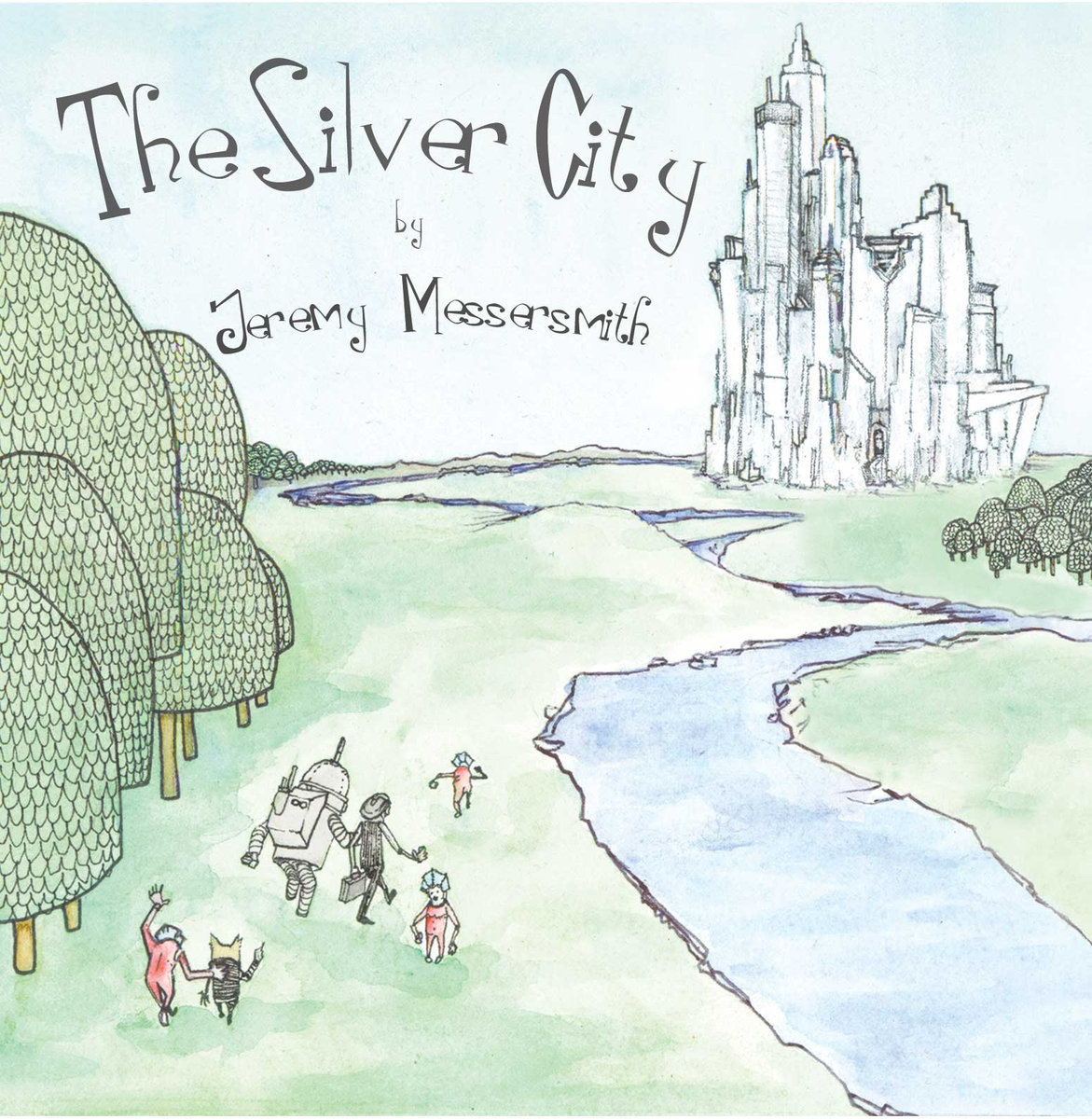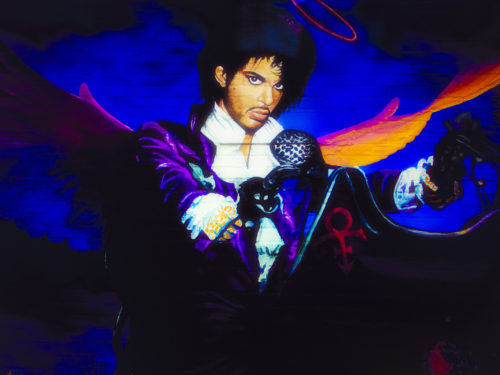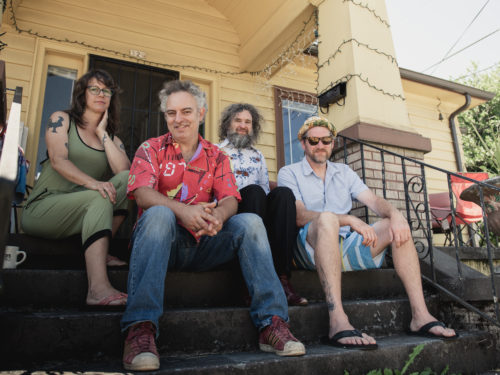For most of my freshman year of high school I was clinically depressed — cry-everywhere-but-feel-nothing depressed. I remember being scared that I would never return to myself or be able to cry at something happy again. I remember sitting on the school bus, listening to Bright Eyes and “Brackett, WI” by Bon Iver as the stale Minnesota winter covered my neighborhood. When I look back, I remember sitting on that bus fatigued out of my goddamn mind — not much else.
I do remember the music I listened to, though. It felt like nothing, not even changes in my medication, therapy or using my lightbox could pull me deep from within myself. Most music brought me down. Much of the music taste I cultivated during this depression has stayed with me in a way I don’t necessarily like. Every time I listen to “At The Bottom of Everything” by Bright Eyes now, I am catapulted right back to those too-quiet bus rides.
But Jeremy Messersmith’s sophomore album, The Silver City, which celebrated its 10th anniversary on Sept. 9, had the opposite effect. It made me feel something, pulled my shoulders up and back. I had been a Messersmith fan for a while, but this album took on a special meaning during my freshman year and has continually evolved in my mind since.
I first discovered the Minnesota-based musician during another, less severe, depressive episode in middle school. His third album, The Reluctant Graveyard, had come out and I remember hearing the single “A Girl, A Boy and a Graveyard” on the radio in the car. “Lucy takes the long way home / Meets me in a field of stone / She says I don’t know how I’m supposed to feel / My body’s cold my guts are twisted steel,” he sings over lightly picked guitar and swelling strings. “I feel like I’m some kind of Frankenstein / Waiting for a shock to bring me back to life / But I don’t want to spend my time / Waiting for lightning to strike.”
It was too morbid on first listen, but I returned to the song again and again. Slowly but surely, I started to explore Messersmith’s discography. Puzzle pieces clicked in my mind when I heard Alcatraz Kid and The Silver City. I had found an artist who fit exactly what I needed.
Messersmith’s music is sad, sure, but his light, sometimes falsetto voice, reminded me of the light I had inside of me — even when I couldn’t see it. So when I found myself too depressed to function, I turned to see if his music could shake me. And in some ways, The Silver City did.
The Silver City is an album about Minneapolis in the way that Sufjan Stevens’ Carrie and Lowell is about Oregon: A sense of place is important and informs the album, but it’s about much more than just the place. Messersmith pulls sounds and sights from across the Minnesota city on the album’s titular track. During a 10th-anniversary commentary session, he mentioned that he hopped on a light rail line in Minneapolis with a voice recorder in hand to capture the album’s first moment: people quietly chattering, the sounds of the light rail arriving at the station and the intercom announcement. There’s trickling music, a fuzzy sound swells and “Welcome to Suburbia” starts.
The neighborhood I grew up in always felt like suburbia to me, despite it being pretty much in the middle of Saint Paul. It was, and still is, a safe neighborhood that has lots of families, an International Baccalaureate high school and a Barnes and Noble-turned mini Target. Saint Paul was a good place to live but as I grew up and into my depression, it began to seem boring and too quiet. Cars would soar down the hill I lived on. I couldn’t feel a thing.
Suburban life provides a false sense of security, a glossy sheen. When I first heard “Welcome to Suburbia,” I found the somewhat sarcastic premise not far off from my own experiences. “Life’s been so unkind to you / Never does what you want it to / We’ve got cul-de-sacs and barbecues in suburbia / Welcome to suburbia / Welcome to the rest of your life,” Messersmith sings, his voice soaring. I grasped onto the first two lines immediately, but only when I return home do I understand the lyrics. Instead of cul-de-sacs and barbecues, there’s a juice bar that sells $6 avocado toast right down the street from where I grew up. In the same commentary Messersmith chuckled that he too was living in suburbia years after writing the song.
The Silver City rises and falls like my moods these days: it has waves, but the album’s darkest moments still carry light. “Welcome to Suburbia” segues into the quiet and downtempo “Dead End Job.” Franklin Avenue” opens up in catharsis before things slow down again with “The Commuter,” which features Messersmith strumming a guitar accompanied by few other instruments. It’s the song I credit with lifting some of my depression.
In all likelihood, finding the right medication and a month-long hospitalization during which I started therapy were probably the two things that lifted my depression. But this song, and the album, were my accompaniment to these healing events.
“Some nights I can’t feel my beating heart / I’ve got a secondhand body made with junkyard parts / An ink-blot head that makes it hard to care / Broke-down hands won’t get me anywhere,” Messersmith sings on “The Commuter. “But when I drive this car to work I feel like I’m going places / Landscapes all around me seem to change / And when I drive this car to work / I feel like I’m made of something / And some day things will start to go my way.”
The song plods along but retains momentum, much like the days when I’m just trying to get by. In classic Messersmith fashion, this sweet everyday sadness continues into the bustling track “Miracles” and on until the last track, “Light Rail,” a joyous ode to public transit. Later in the album, Messersmith covers The Replacements’ “Skyway,” a quintessentially Minnesotan song about the elevated walkways that connect buildings in the downtown areas of the Twin Cities.
After my freshman year hospitalization, I switched to a high school where I used the skyways between classes and would listen to Messersmith’s cover on repeat. (This was about a year before I fell in love with The Replacements and realized that “Skyway” wasn’t a song Messersmith wrote but a Westerberg work of genius.) I remember walking in the skyways with new friends, feeling lighter — maybe a bit prone to breaking into pieces, but still, lighter. I was easing out of my depression, and I had proof: The Silver City made me feel at home within myself and within my hometown and neighborhood — depressed or not.
I needed to get the fuck out of Minnesota after high school. High school was tiring for me, and starting it with a massive depressive episode wasn’t fun. My older brother developed serious mental health issues during my junior year that began impacting me. As much as I loved Minnesota, I knew distance would help me grow, just as listening to The Silver City brought me to a better place.
Four months before I moved to Oregon for college, I had The Silver City’s album cover tattooed on my right thigh. Every time I put my right foot forward, I am carrying my home and my mental health with me. The tattoo serves as a reminder of where I come from and where I’m headed.
Flash forward a few years, and managing my mental health is still a day-to-day effort — sometimes something more — and my attempts at coping are often still accompanied by Messersmith’s music. (His newest album Late Stage Capitalism came out in March.) Some challenges are new. My medications have changed and I still see a therapist regularly. My depressive episodes are less severe, but my anxiety is harder to manage. When Messersmith sings about paralysis in “Franklin Avenue,” I now know how I freeze up during some panic attacks. No matter where I am, my mental illnesses will follow me the same way the catchy chorus in “Virginia” does. I can’t just sit back. I have to take my meds and take care of myself. When I realized that The Silver City was turning 10, I felt a sense of relief. If I continue to respond to the album and it continues to impact me, I’ll be OK.
But nothing lasts forever. Things change. Messersmiths move from the city to suburbia. As I listen to the album now, I am reminded of the way “Welcome to Suburbia” made me feel the tiniest tinge of something other than depression — even if I didn’t recognize it until later.
Sometimes, when I am visiting Minnesota, I try to time my light rail rides so that I arrive at Franklin Avenue station in Minneapolis right as I click play on the album. Sometimes I cry, and look at how far I’ve come from my beloved silver cities. Sometimes I feel nothing or feel like I’m heading backward. But looking out of the window, listening to an album that is emblematic of home, reminds me how far I have yet to go. For better or worse, I’m stuck with The Silver City and hard work ahead. Cities pass by, landscapes shift, and right now, being a commuter — surrendering myself to change — doesn’t look so bad.
Follow Sararosa on Twitter
(Split Tooth may earn a commission from purchases made through affiliate links on our site.)




